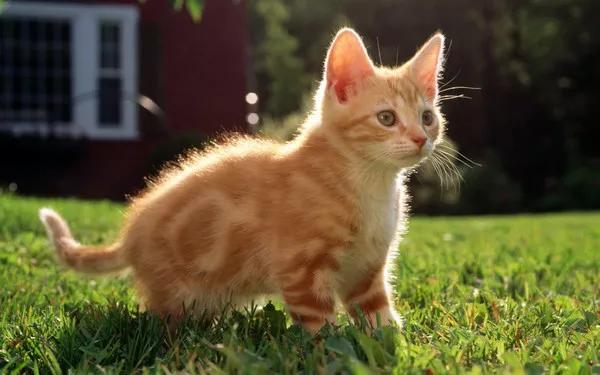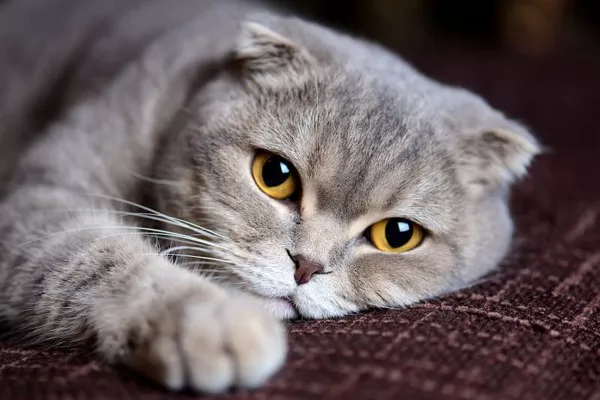Abyssinian cats are known for their stunning appearance and vibrant personalities. With their sleek, ticked coats and playful nature, they make wonderful companions for cat enthusiasts. However, like any breed, Abyssinian cats have their share of health concerns to be aware of. In this article, we will explore the question, “Do Abyssinian cats have health problems?” and discuss three common health issues that Abyssinian cat owners should watch out for.
1. Dental Problems
Do Abyssinian cats have health problems related to their teeth? Yes, dental issues are a common concern for these cats. Abyssinians are prone to dental problems, much like other breeds. Poor oral health can lead to discomfort and even more severe issues down the road.
Dental issues in Abyssinian cats often manifest as gingivitis, periodontal disease, and tooth decay. It is crucial for cat owners to monitor their Abyssinian’s oral health and take preventive measures.
Regular dental check-ups with your veterinarian can help catch problems early. Additionally, proper dental care, including brushing your cat’s teeth and providing dental treats or toys, can reduce the risk of these issues.
2. Renal (Kidney) Disease
Renal disease is another common health concern for Abyssinian cats. The answer to the question, “Do Abyssinian cats have health problems related to their kidneys?” is unfortunately, yes. Renal disease, or kidney disease, is a significant health issue in Abyssinians and many other breeds.
Renal disease can be hereditary in some cases, making it essential for breeders to screen their cats for this condition. For cat owners, it’s crucial to be vigilant about your Abyssinian’s kidney health. Regular check-ups and blood tests can help detect any early signs of kidney problems. Maintaining a well-balanced diet and ensuring your cat drinks enough water can also play a role in preventing renal disease.
3. Hyperthyroidism
Another common health problem Abyssinian cats may face is hyperthyroidism. This condition occurs when the thyroid gland produces an excess of thyroid hormones, leading to an overactive metabolism. Hyperthyroidism is more prevalent in older cats, and Abyssinians are not an exception.
The signs of hyperthyroidism in Abyssinian cats may include increased appetite, weight loss, restlessness, and excessive thirst. If you notice these symptoms in your cat, it’s essential to consult your veterinarian promptly. Diagnosis is typically confirmed through blood tests, and treatment options may include medication, surgery, or radioactive iodine therapy, depending on the severity of the condition.
Conclusion
In conclusion, while Abyssinian cats are generally healthy and robust, they can still be susceptible to certain health problems. To answer the question, “Do Abyssinian cats have health problems?” – yes, they do, like any other breed. However, with proper care, attention, and regular vet check-ups, these issues can be managed or even prevented. As a responsible Abyssinian cat owner, it’s crucial to be aware of these common health concerns and take the necessary steps to keep your feline friend happy and healthy. Dental problems, renal disease, and hyperthyroidism are among the primary health issues to watch for in your Abyssinian cat. Remember that early detection and proactive care are key to ensuring a long and fulfilling life for your beloved Abyssinian companion.
FAQs About Abyssinian Cats Facing Hyperthyroidism:
1. What causes hyperthyroidism in Abyssinian cats?
The exact cause of hyperthyroidism in cats is not fully understood, but there may be multiple factors involved. It’s thought that diet, environmental factors, and genetic predisposition may all play a role in the development of this condition.
2. How is hyperthyroidism in Abyssinian cats diagnosed?
Diagnosing hyperthyroidism in Abyssinian cats typically involves a blood test to measure the levels of thyroid hormones. Your veterinarian will use these results to determine if your cat has hyperthyroidism and to what extent.
3. What are the treatment options for hyperthyroidism in Abyssinian cats?
There are several treatment options for hyperthyroidism in Abyssinian cats:
a. Medication: Anti-thyroid medications are commonly used to manage hyperthyroidism. These drugs help regulate the thyroid hormone levels. Your cat will need regular monitoring and medication adjustments.
b. Surgery: Surgical removal of the affected thyroid gland(s) may be an option, especially if the condition is severe or unresponsive to medication. This is a more invasive approach and involves some risks.
c. Radioactive Iodine Therapy: This treatment involves administering a radioactive substance that targets and destroys the overactive thyroid tissue. It’s considered one of the most effective and least invasive treatments but often requires specialized facilities.
The choice of treatment will depend on your cat’s overall health, the severity of the condition, and your veterinarian’s recommendation.
4. Is hyperthyroidism in Abyssinian cats curable?
Hyperthyroidism is generally manageable but not always curable. With proper treatment, most cats can live a comfortable and healthy life despite having this condition. Medication, surgery, or radioactive iodine therapy can effectively control the disease and its symptoms.
5. What can I do to support my Abyssinian cat with hyperthyroidism?
Supporting a cat with hyperthyroidism involves:
Administering prescribed medication as directed by your veterinarian.
Ensuring your cat’s diet is appropriate and tailored to their condition.
Some special diets are designed to support hyperthyroid cats.
Regular veterinary check-ups and monitoring of thyroid hormone levels.
Providing a comfortable and stress-free environment to help manage the condition.
6. Are there any long-term effects of hyperthyroidism in Abyssinian cats?
If well-managed, hyperthyroidism does not necessarily lead to long-term adverse effects on your Abyssinian cat’s health. However, untreated or poorly managed hyperthyroidism can cause complications, such as heart problems, kidney issues, and other secondary health concerns. This is why early diagnosis and proper treatment are crucial.
7. Can hyperthyroidism recur in Abyssinian cats?
Yes, hyperthyroidism can recur, even after successful treatment. This highlights the importance of ongoing monitoring and regular check-ups with your veterinarian to detect any recurrence or adjustments needed in your cat’s treatment plan.
8. Is hyperthyroidism preventable in Abyssinian cats?
Preventing hyperthyroidism is challenging since the exact cause is not well-understood. However, maintaining your cat’s overall health with a balanced diet and a low-stress environment can contribute to their well-being and potentially reduce the risk of certain health issues, including hyperthyroidism.
In conclusion, hyperthyroidism is a common condition that Abyssinian cats, like other breeds, can develop. While it can’t always be prevented, with early diagnosis and appropriate treatment, Abyssinian cats can lead healthy and fulfilling lives despite this condition. If you suspect your Abyssinian cat may have hyperthyroidism or if you have any concerns about their health, it’s essential to consult with your veterinarian for proper diagnosis and guidance on managing the condition.
Related Topics:
Can Abyssinian Cats Go Outside? (Useful Truth Found Here)
All You Need To Know About The Intelligence Quotient of Abyssinian Cats
Are abyssinian cats indoor cats?


























